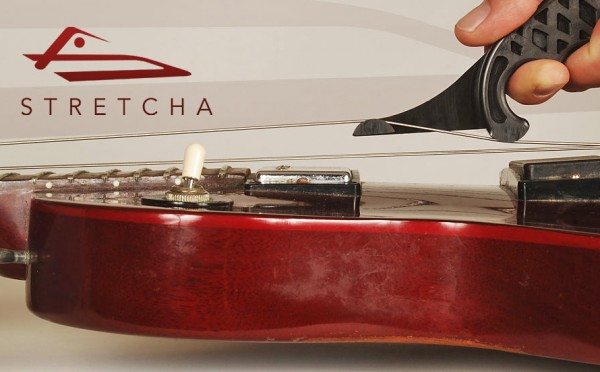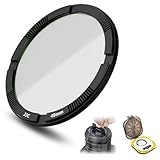If you have tuning problems, it may be the strings and not your guitar, according to the folks at String Stretcha. There are ways to stretch the strings using your fingers, but pulling on them at random places results in uneven stretch and using the “thumb and fingers” method takes a long time and causes a lot of pain. If you use the Stretcha tool, you can zip it up and down the strings in just five minutes and achieve a much more even stretch. And the tool has been tested in studios and on the road by professional guitar techs, who give the Stretcha a big non-sore thumbs up. You can find the Stretcha at retailers, but if you can’t wait to get your hands on one, you can order directly from String Stretcha for $14.50.




Gadgeteer Comment Policy - Please read before commenting
Nice! I use the old index finger yank method… I’d be curious to try one of these…
I ordered a couple for Butch and Rachel last night. Amazon actually had them for about $12.50 instead of $14.50.
Seems little point in putting new strings on only to stretch the twang out of them before you play. Are you buying cheap strings? Maybe you could string them better?
I only have tuning problems on one guitar (1966 TDC 125) out of the 4 I play regularly (1970s SG2000, modern Tele USA, Taylor G6). Guess which one has the most primitive bridge and tuners? Each to his own I guess.
@Izzy Not sure what you mean by stretching the twang out of your strings, but new strings always need time to stretch and settle before they hold a tune. Maybe I notice it more with my ukuleles because they use nylon strings and not steel…
Julie – there are two reasons why new steel strings sound better than old ones – firstly there’s dirt, which is less of a problem on plain strings and secondly is the elasticity – which is reduced after they have been stretched or over stretched.
If you have tuning problems with new (steel) strings then you can try:
1 – use heavier guage strings.
2 – put fewer turns around the machine head. I try to get about one single turn on the tuner. The strings hold perfectly well and with fewer turns there is less opportunity for the strings to settle as they are played and tuned.
As I say in my post – I only get tuning problems with my old Gibson which has crappy 1966 el-cheapo tuners and a trapeze bridge. My other guitars have no problems whatsoever and I can change strings 5 minutes before a gig and play with no problems.
My set ups are:
Gibson 11s DR
Tele 12 DR
SG2000 8 EB or 9 DR
Taylor 10 or 11 DR Sunlight
The Ernie Balls can be hard to keep in tune – but that’s probably as much to do with the way they’re played as the lightness. They’re pretty toneless – but that’s not what they are there for when the gain is cranked up to 11!
I’ve got no recent experience of nylon strings – but I’d bet that a significant part of the problem is that you have many turns round the machine head rather than the strings needing to be stretched. I guess you can’t do much about this cos I don’t think that nylons will hold well with only a few turns.
There is definitely a break in period with new steel strings where they will go out of tune immediately after your initial tune up after playing for a couple minutes.
Pre stretching your strings a little bit without over doing it is the answer for this.
izzy, you don’t seem to understand:
it’s not about the strings not holding a tune over time, it’s only when they are NEW, to help them break-in faster…
it’s a very common thing, i’m very surprised that you don’t seem to know about that, but that’s how it is .
Nickie – the post where I wrote “I can change my strings 5 minutes before a gig and play with no problems” should have given you a clue that I understand it’s about new strings.
New strings have never been a problem for me – the new strings go on, I tune up the new strings, I play the new strings. The new strings stay in tune.
If you’re having this problem with new strings check how many turns round the machine head you’ve got with your new strings; if it’s more than one then it’s too many.
That’s with new strings – just to be clear.